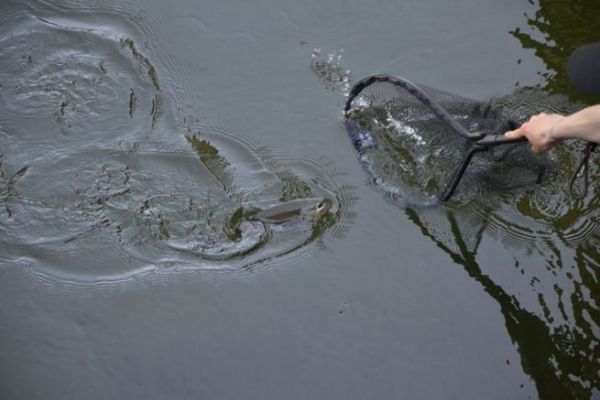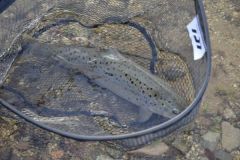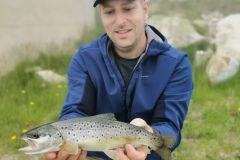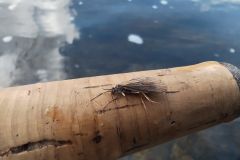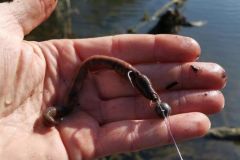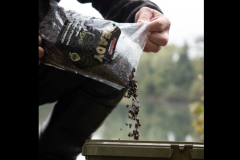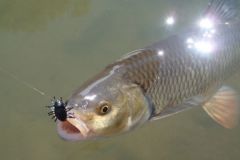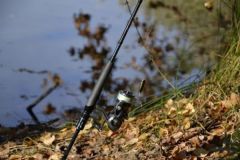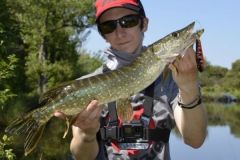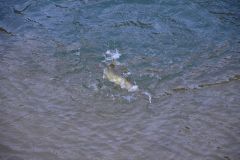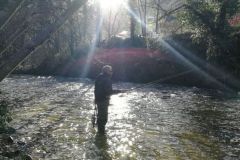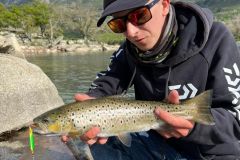A material that's too stiff or too soft
Choosing the right trout tackle, including rod and line, is extremely important. The trout's fighting style is based on its ability to spin and sometimes candle. These fighting techniques create significant tension gaps in the line and can dislodge hooks from the trout's mouth, especially if you don't use barbs.
If the material is too stiff, it won't dampen the line sufficiently and will often cause it to stall, for example if you use braid in combination with a fast-action rod that is stiff at the top. On the other hand, too soft a material, such as a parabolic rod with a very elastic nylon, can prevent you from hooking deep enough, especially with big fish with very hard mouths.
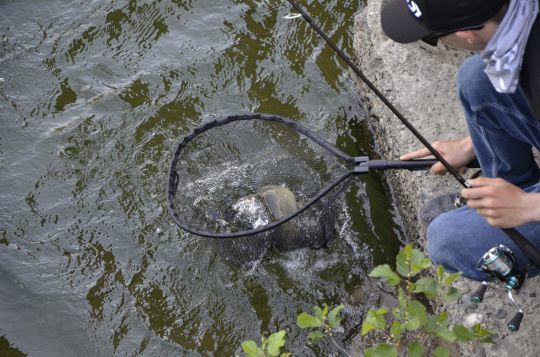
Unsuitable hooks
Even if you use the right rod and braid set, adapted to the size of the fish you're targeting and to your level of battle management, using the wrong hooks is prohibitive. Among the various hook shapes, there are different thicknesses and bite strengths designed specifically for certain types of fishing. A strong iron hook, whose purpose is to be solid, is much harder to penetrate than a thin iron hook.
The compromise is to use hooks that you are 100% sure of exploiting. A fine iron hook with a strong material will be easy to set, but can very easily open or break during a fight, since the stiff material will increase the force applied to it. On the contrary, a strong, solid iron hook will be very hard to set with a parabolic rod and nylon.
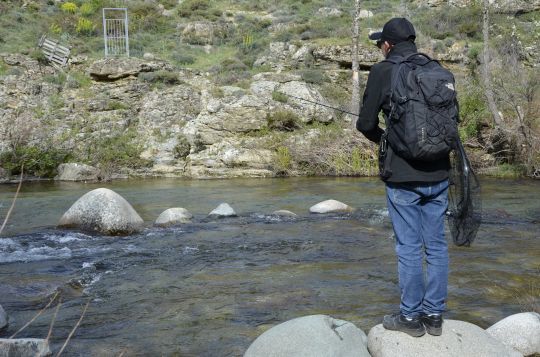
Know your abilities and your environment
Before even trying to find the ideal equipment for trout fishing, it's very important to take a step back from our level and our fishing spots. Just because you're looking for a trophy fish doesn't mean you absolutely have to fish with very solid equipment, in a river where big fish may not exist. It's important to find out the average size of fish so that you can adapt your equipment to the river's potential.
If you've never caught big trout before, it's not a good idea to buy big-fish-specific equipment and risk being disappointed with every medium-sized fish you catch. Question yourself frequently, both in terms of your practice and the equipment you use.
